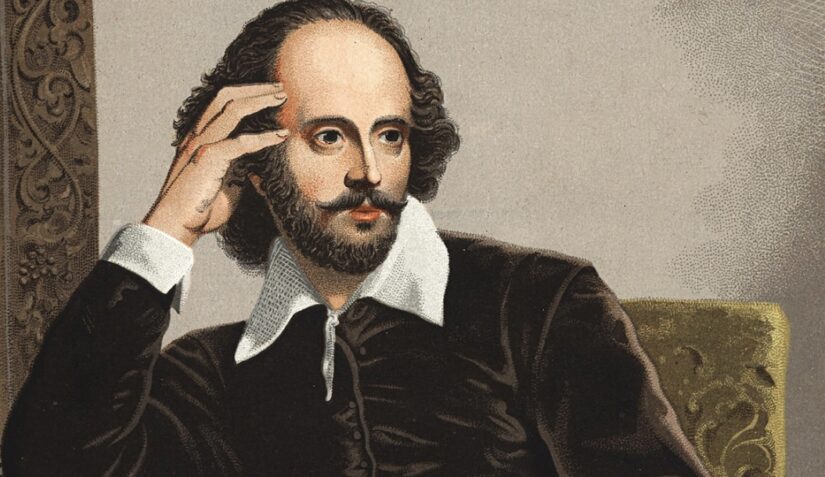Shakespeare’s Inventions: Words and Phrases
Over 450 years ago, the literary world was profoundly shaped by William Shakespeare, an illustrious writer and poet. His unparalleled mastery of the English language enabled him to introduce over 1,700 new words into the vernacular. Through his sonnets and plays, Shakespeare unveiled words and phrases that quickly became woven into the fabric of the English language, many of which remain vital to our daily conversations.
As we delve into the treasure trove of language that Shakespeare has left us, it becomes clear that he was not just a playwright but a true linguistic innovator. Among the myriad contributions, here are 20 expressions and terms that have stood the test of time, showcasing Shakespeare’s enduring influence on English.
The Invention of “Addiction”
The term “addiction” was first penned by Shakespeare in “Othello,” bringing a new word to describe an age-old human condition.
Life as a Performance: “All the world’s a stage”
This famous phrase from “As You Like It,” spoken by Jacques, encapsulates the idea that life is a theatrical performance, with each person playing their part.
The Sparkle of “Bedazzled”
In “The Taming of the Shrew,” Shakespeare coined “bedazzled” to describe the mesmerizing effect of something sparkling or shining.
Envisioning a “Brave new world”
Miranda’s words in “The Tempest” introduce a phrase symbolizing the awe and potential of the future.
The Origin of “Critic”
Before its current common usage, “critic” was introduced by Shakespeare in “Love’s Labour’s Lost,” expanding the vocabulary of art and evaluation.
Describing the “Eventful”
“Eventful,” meaning full of significant events, made its debut in “As You Like It,” adding depth to our descriptions of experiences.
The Visual “Eyeball”
The straightforward yet previously uncoined term “eyeball” appeared for the first time in “The Tempest.”
“Generous” in Giving
Shakespeare’s “Julius Caesar” played a pivotal role in defining “generous” as an attribute of kindness and generosity.
Expressing Relief: “Good riddance”
“Good riddance,” a phrase expressing liberation from unwelcome elements, was artfully used in “Troilus and Cressida.”
The Dilemma of Being “In a pickle”
From “The Tempest,” this phrase captures the essence of finding oneself in a challenging situation.
Confusion with “It’s Greek to me”
Uttered in “Julius Caesar,” this phrase has become a universal expression of incomprehension.
The Solitude of “Lonely”
Shakespeare’s exploration of human emotions in “Coriolanus” introduced the word “lonely” to articulate the feeling of solitude.
The Grandeur of “Majestic”
In “Henry VIII,” the word “majestic” was used to convey grandiosity and splendor.
The Role of a “Manager”
“A Midsummer Night’s Dream” marks the first recorded use of “manager” in the context of English literature.
The Glow of “Radiance”
“Radiance,” describing something that shines brightly, was a Shakespearean creation seen in “The Two Gentlemen of Verona.”
Fate of “Star-crossed lovers”
This term, emblematic of doomed love, originated from the Prologue of “Romeo and Juliet.”
The Attitude of “Swagger”
“Swagger,” describing a boastful or confident gait, came from “A Midsummer Night’s Dream.”
The Act of “Undress”
The simple yet unmentioned act of removing clothes was first referred to as “undress” in “The Taming of the Shrew.”
The Futility of a “Wild-goose chase”
Used in “Romeo and Juliet,” this phrase captures the essence of a hopeless pursuit.
The Wisdom of “To thine own self be true”
This advice from “Hamlet,” given by Polonius, emphasizes the importance of authenticity and self-truth.
Shakespeare’s literary contributions have left an indelible mark on the English language, illustrating his role not just as a playwright but as a visionary wordsmith whose creations continue to enrich our linguistic heritage.
Conclusion: Shakespeare’s Enduring Legacy
The influence of William Shakespeare on the English language and literature is immeasurable. Through his innovative use of language, Shakespeare not only entertained audiences of his time but also enriched the English lexicon, introducing phrases and words that have become integral to our daily discourse. His ability to coin new terms and expressions that capture the human experience with such precision and beauty speaks to his unparalleled genius as a wordsmith.
As we reflect on the 20 terms and phrases highlighted from his vast body of work, it becomes evident that Shakespeare’s contributions go beyond mere entertainment; they have become foundational to the way we communicate and understand the world around us. His words have transcended the boundaries of time and culture, proving that language can indeed be as immortal as the stories it is used to tell.
Shakespeare’s legacy is not only preserved in the texts of his plays and sonnets but also lives on in the everyday language we use. As we employ phrases like “brave new world,” “star-crossed lovers,” or even something as commonplace as the word “eyeball,” we are unwittingly paying homage to a figure whose creativity and mastery of language have left an indelible mark on the world. In embracing these words, we keep the spirit of Shakespeare alive, ensuring that his contribution to the English language continues to be celebrated for generations to come.
